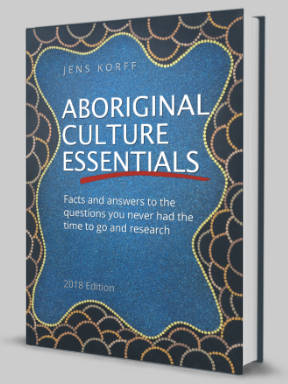Law & justice
Aboriginality, disadvantage and sentencing
When sentencing, courts should consider a person's background, including their social situation. The offence cannot be seen in isolation.

Wishing you knew more about Aboriginal culture? Search no more.
Get key foundational knowledge about Aboriginal culture in a fun and engaging way.
This is no ordinary resource: It includes a fictional story, quizzes, crosswords and even a treasure hunt.
Stop feeling bad about not knowing. Make it fun to know better.
Social disadvantage a factor in sentencing
On 2 October 2013, the High Court found that social disadvantage should be taken into account in sentencing.
Should judges take into account an offender's Indigenous background before deciding on a sentence?
- No
- 52%
- Yes
- 39%
- Don't know
- 9%
SMH survey 23/9/2017; 1,319 votes
In its judgement, it found that “the effects upon an offender of profound deprivation do not diminish over time and should be given full weight when sentencing the offender”, among other factors such as the seriousness of an offence and the extent to which the victim has been harmed.
The court did not say that the broader disadvantage faced by Aboriginal Australians should always be taken into account in sentencing, rather courts should do so on a case-by-case basis. It also said that, black, white or brindle, if you cross the law and are sentenced, the courts must take into account your whole background, and they cannot given you a heavier sentence on the grounds that you're older and should know better.
This was the first time in decades that the High Court looked at the sentencing of Aboriginal offenders, which makes the decision an important one. [1]
From the late 1990s, prison sentences had lengthened disproportionately for Aboriginal offenders. NSW and Northern Territory courts in particular had justified long sentences for Aboriginal people convicted of serious offences by giving greater weight to the seriousness of the offence than all other considerations. [2]
However, the ruling is not permission for Aboriginal offenders to "excuse" their crime on the basis of their Aboriginality nor an endorsement or creation of a "special" regime of sentencing for Aboriginal offenders. [1] The ruling applies to all Australians.
Unfortunately, it also provides no answers whatsoever to the issue of the disproportionate and often unnecessary imprisonment of Aboriginal people.
An Aboriginal offender's deprived background may mitigate the sentence that would otherwise be appropriate for the offence in the same way that the deprived background of a non-Aboriginal offender may mitigate that offender's sentence.
— Joint judgement of the High Court [3]
Do we need such findings?
Ray Jackson, President of the Indigenous Social Justice Association, questions if such findings help reduce Aboriginal sentences and prison rates.
He says: "I would prefer, and recommend, the Royal Commission [into Aboriginal deaths in custody] recommendations such as 87a that all police services should adopt and apply the principle of arrest being the sanction of last resort in dealing with offenders." [4]
Jackson notes "that governments which have not already done so should legislate to enforce [recommendation 92 which provides] the principle that imprisonment should be utilised only as a sanction of last resort."